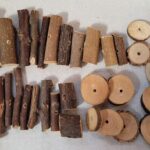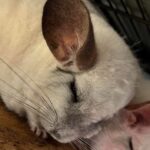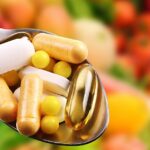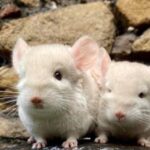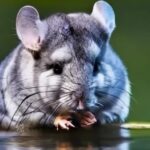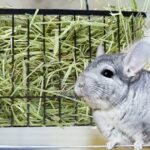Chinchilla Treats and Food Precautions: Chinchilla’s natural diet, like herbivores they are, rely on roots, grass, plants, etc. which is sufficient to provide the nutrients they need, and they are not accustomed to a lot of fat and sugar. Chinchillas can live without treats, pellets and hay are the only foods that are necessary for your chinchillas. Chinchillas generally are and remain healthy, if they are not overfed on treat foods, as feeding them many treats can cause many health problems.
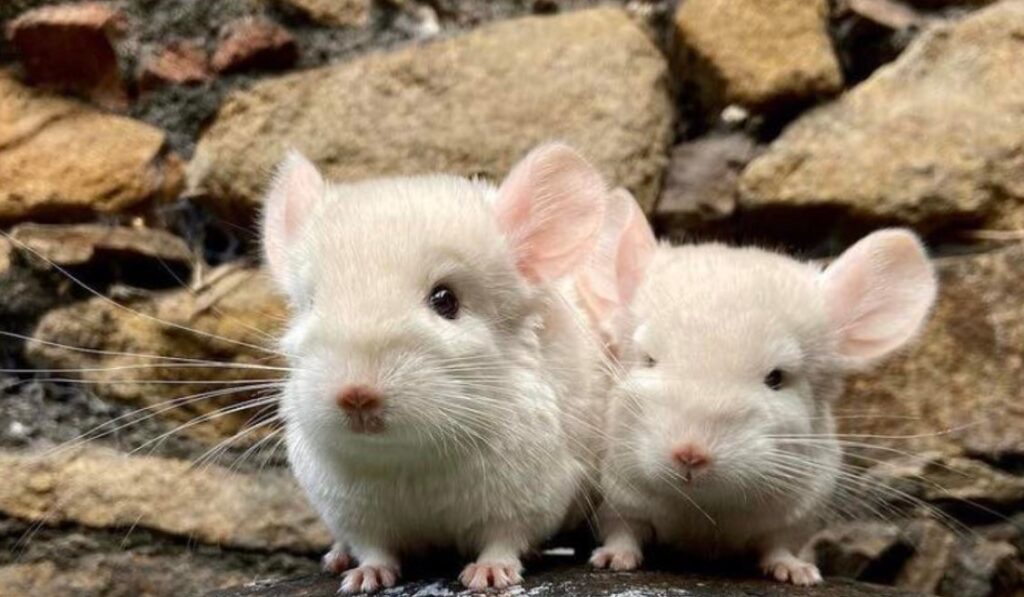
As humans, we want to give our pet a pleasure and we cannot resist many times because of the love we have for it. Especially for the chinchilla owners the word moderation is the key for a healthy and really happy chinchilla! There are also good and bad chinchilla treats that you should be aware. First of all we cannot give to our chinchilla every food that we eat as treat or not. Chinchillas have a very sensitive digestive system that is not used to our food and cannot handle fats, oils and sugary treats. You also advised to avoid the most commercial chinchilla treats as stick seed treats and sugary ‘yogurt’ drops and grains that they are also high in sugar and fats. Too many treats can cause many health issues like diarrhea, and more serious, can lead to premature death like bloating, severe digestive distress, seizures, impactions, tooth decay, malocclusion, pancreatitis, liver damage. Many chinchilla treats can lead also, as chinchillas are selective feeders, to the point where they will consume less of their basic food, as they will wait for the treats, and this will result to weight loss and malnutrition. Finally remember how small a chinchilla’s stomach is! Many treats means less space in stomach for their normal food.
Chinchilla Treats | Healthy and Unhealthy Treats for Chinchillas
Chinchillas are famous beggars and you should not fall to his trap! Chinchilla does not know what is good or bad for himself and he will consume almost anything you give. You must resist to his begging and the chin should learn that he would not have a treat every time is begging! When a chin is begging, it may also be because his food bowl or water bottle is empty, or because he wants attention or playtime out of cage.
When you give a treat to your chinchilla by hand, have in mind a couple of things. Chinchillas rely most on their sense of smell as their eyes are on the sides of their head so sometimes they can have trouble finding the treat or accidentally nip your finger. However, when feeding treats you should give them by hand and never add them in the food bowl. Otherwise, chinchillas, as we said are selective feeders, will only pick out the treats to eat and they may wait to eat again to find treats in their food bowl, which is NOT good as it could lead to weight loss and malnutrition.
Some treats can be given every day and some others should be given 2 – 3 times a week. Some treats also can be avoided totally and never be given. You should give only one type of treat per day and not one of each type. You should NEVER give a treat to a chinchilla under 6 months of age. You should NEVER give a treat to an ill chinchilla or has diarrhea or messy and squashy fecal droppings, instead they should consume only pellets and hay and sometimes not even pellets if the diarrhea is excessive.
CHINCHILLA HEALTHY TREATS
This list provides the treats and sometimes “medical treats” that are safe to be consumed without causing an immediate serious health issue. Nevertheless, some of them it is better to be avoided, or to be given extremely rare, because they can actually cause health issues, as they are too high in fat, oils and sugar. Nuts, seeds and raisins are the treats that you could never give because of this, and they actually do not offer any value to chinchilla’s diet.
- Alfalfa Hay Cubes – Should be given but they should not be fed exclusively. Too much alfalfa could lead to urinary and other problems, as it is high in protein, calcium, and oxalates. It is good for young chins and breeding chinchillas. Alfalfa should be fed as a treat ONLY and daily to chinchillas with calcium deficiency. Alfalfa is NOT a hay-replacement. Alfalfa hay cubes are high in calcium and they can be offered to healthy chinchillas 2-3 time a week.
- Dried Rose Hips – It is one of the best treats and can be offered daily 1-2 rose hips. They are high in vitamin C and have plenty of fibre.
- Herbs Fresh or Dried – Can be offered 3-4 times a week in small amount like 1-2 teaspoons. Dandelion dried roots or leaves, rosemary, hibiscus, Parsley, strawberry, blackberry leaves.
- Fruit Fresh or Dried – Can be offered 3-4 times a week. Prune, apple, banana, peach, papaya, apricot, pear give them to a tiny piece about the size of a large raisin to a young chin or double size to an adult. We prefer the dried ones because the fresh can lead to diarrhea. The concentration of sugar, which is high at fruits, is about the same dried or fresh.
- Vegetables or Greens – ONLY CARROT cutting it to very small pieces (1-2 pieces only per chinchilla) 2-3 times a week. Vegetables are seriously dangerous for chinchillas and you must NEVER feed a chin with as they cause bloat and in many times bloat can be fatal. Chinchillas should not be confused with rabbits, guinea pigs and other rodents about their diet. AVOID ALL vegetables except carrot. However, some vegetables when are dried processed they can be given. Choose only dried potato then.
- Grains – Can be offered 2-3 times a week in small amount about 1 teaspoon or 1 piece. Unfrosted shredded wheat and old-fashioned oats. Grains are high in carbohydrates and phosphorus.
- Nuts and Seeds – The truth is that are not so healthy for the chins. They can be offered once a week limited to a small piece. Even though there are controversial opinions, about nuts and seeds, because are too high in protein, fat and oils I prefer only the sunflower seed and you could give once a week but only 2-3 seeds.
- Burnt Toast – Once a week one small piece about 1”/cm square. Even though your chin probably will not like it, it is very safe and good for the digestion and. It is great for the diarrhea. In excessive diarrhea, it is good to remove pellets for 2 days leave only hay and give burnt toast too.
- Raisins – Chinchilla’s favorite! Can be offered 1-2 times a week. Raisin considered being quite unhealthy though. A raisin contains a large amount of sugar and chinchilla’s diet should have no more than 4% of sugar in a day. Raisins can be used as treats for taming and training as they are so loved by chins! You can cut a raisin with a sharp knife in tiny pieces as treat so you can ‘fool’ your chin when you train him.
- DO NOT give many treats every day. ONLY one per type a day. Try to give the healthier ones. It is not necessary to give treats every day and as we said many times chinchillas main diet, pellets and hay, are sufficient and they actually do not need any treat. Resist when your chin is begging, especially after a raisin! They are adorable, I know it is difficult to resist, but it is for their good, and we prefer a healthy chin from an ill one. It will be our fault if serious health issues arise from too many treats.
CHINCHILLA UNHEALTHY TREATS
- Most chinchilla treats sold in pet stores – High in sugar, fats and oils. Bad packing. Contains preservatives.
- Acid Fruits – Lemons, grapefruit, tomatoes, etc. Chinchilla cannot handle high acidity.
- Watery Fruits – Fruits like watermelon are known to give chins diarrhea.
- Vegetables – Except carrot, nothing else is permitted. Vegetables are seriously dangerous for chinchillas and you must NEVER feed a chin with as they cause bloat and in many times bloat can be fatal.
- Corn – Avoid corn, as it will cause bloat, which is in most cases fatal in chinchillas. Corn is also prone to mold and fungus in the manufacturing and storing process.
- Chocolate – High in fat and sugar. It is very dangerous for animals in general and can cause damage to both the digestive and nervous systems.
- Food Containing Animal Ingredients – Milk, cheese, ice cream, etc. Chinchillas are strictly vegetarian and they should not be given anything that contains animal ingredients, as it will have dire and fatal consequences on a chinchilla’s digestive system.
Treats will add a little variety to chinchilla’s main diet resulting to a happier chin. However, try to choose treats low in fats, oils and sugar and use them sparingly. Balance is the best for your chinchilla’s health.
